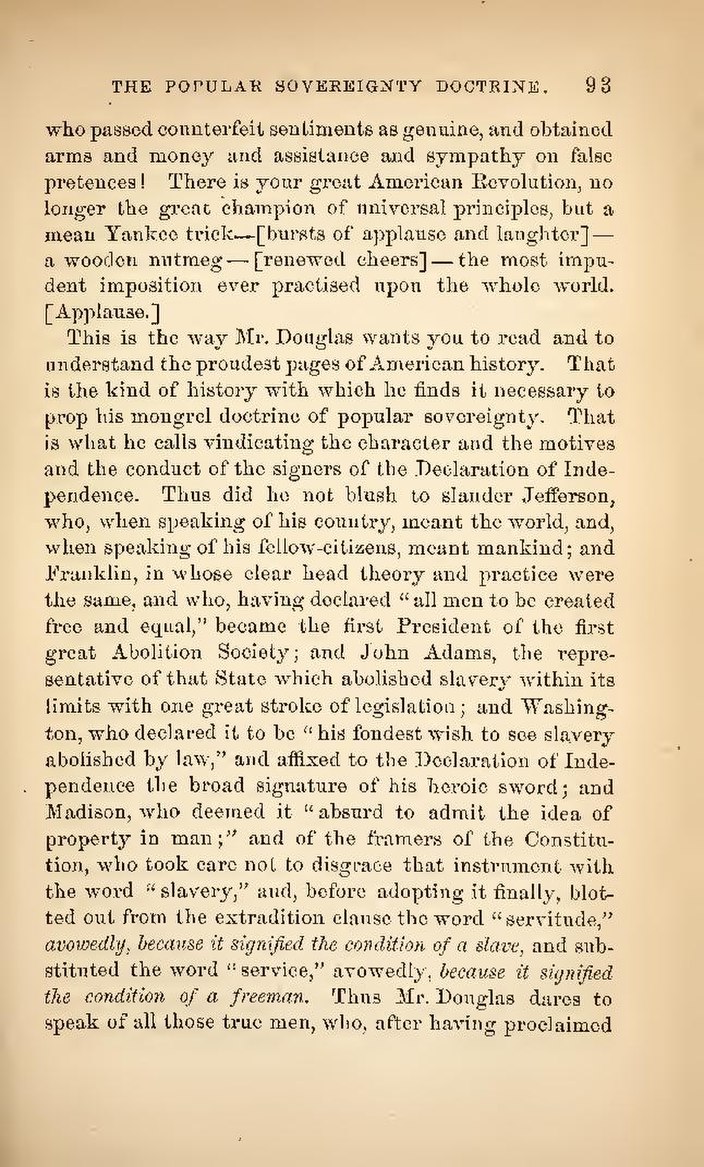who passed counterfeit sentiments as genuine, and obtained arms and money and assistance and sympathy on false pretenses! There is your great American Revolution, no longer the great champion of universal principles, but a mean Yankee trick—[bursts of applause and laughter]—a wooden nutmeg—[renewed cheers]—the most impudent imposition ever practised upon the whole world. [Applause.]
This is the way Mr. Douglas wants you to read and to understand the proudest pages of American history. That is the kind of history with which he finds it necessary to prop his mongrel doctrine of popular sovereignty. That is what he calls vindicating the character and the motives and the conduct of the signers of the Declaration of Independence. Thus he did not blush to slander Jefferson, who, when speaking of the country, meant the world, and, when speaking of his fellow citizens, meant mankind; and Franklin, in whose clear head theory and practice were the same, and who, having declared “all men to be created free and equal,” became the first President of the first great abolition society; and John Adams, the representative of that State which abolished slavery within its limits with one great stroke of legislation; and Washington, who declared it to be “his fondest wish to see slavery abolished by law,” and affixed to the Declaration of Independence the broad signature of his heroic sword; and Madison, who deemed it “absurd to admit the idea of property in man”; and the framers of the Constitution, who took care not to disgrace that instrument with the word “slavery,” and, before adopting it finally, blotted out from the extradition clause the word “servitude,” avowedly, because it signified the condition of a slave, and substituted the word “service,” avowedly, because it signified the condition of a freeman. Thus Mr. Douglas dares to speak of all those true men who, after having proclaimed
